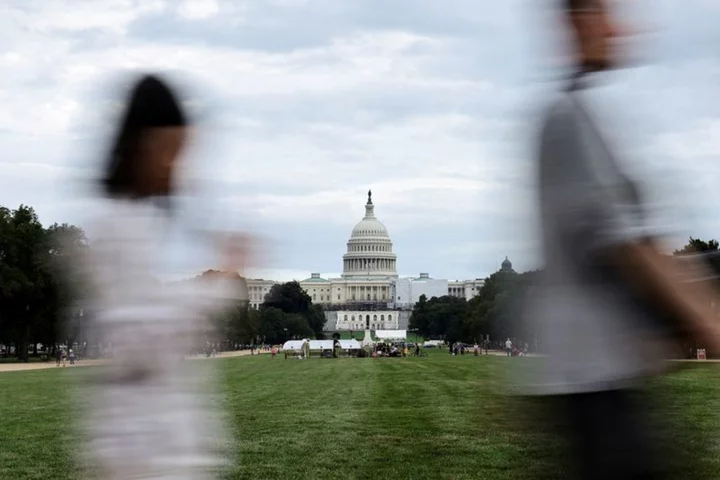By David Randall and Dhara Ranasinghe
NEW YORK A full, lengthy shutdown of the U.S. government is "likely" at the end of the month and could leave the Federal Reserve reluctant to raise interest rates in November, analysts at bond giant PIMCO said in a note on Tuesday.
"If the government shuts down, there may not be a catalyst for it to reopen given the complicated internal dynamics of House Republicans," said Libby Cantrill, head of public policy at PIMCO, which oversees $1.79 trillion in assets.
Current funding for most U.S. government programs except for the military and Social Security payments expires on Sept. 30. If lawmakers are unable to pass a new budget by then, large swaths of government functions would shut down, an event strategists at Goldman Sachs estimate would reduce U.S. economic growth by 0.2% for each week it lasted.
A government shutdown is not seen as toxic a threat to the economy as a default on its debt, which Congress avoided by raising the debt ceiling earlier this year.
The government would continue to make payments on Treasury bonds and other forms of debt during a shutdown.
U.S. House of Representatives Speaker Kevin McCarthy told reporters on Monday he would bring two spending bills to the House floor for consideration this week, including a short-term stopgap measure, to see if they can pass.
Congress is unlikely to pass spending bills quickly due to a renewed focus on deficits among Republicans and some moderate Democrats after the large fiscal stimulus programs that supported the economy during the COVID-19 pandemic, Cantrill said in a panel last week.
"There's now really a focus on austerity," she said.
A government shutdown would prevent the collection and release of key market data including gross domestic product, unemployment figures and inflation data, clouding the ability of central bankers to gauge the strength of the economy, Cantrill said.
"The Fed – who has emphasized how data-dependent it currently is – would be flying blind" into the central bank's policy meeting in November, she said.
At the same time, a shutdown would coincide with the resumption of student loan payments, rising gasoline prices and an auto worker strike, potentially increasing the economic impact of furloughing nonessential government employees, Cantrill said.
The impact of past shutdowns on U.S. stocks has been slight. The S&P 500 has fallen by an average of 0.4% in the week before a shutdown, and gained a total of 0.1% over the length of all shutdowns since 1976, according to CFRA Research data.
Economists at Capital Economists, meanwhile, said in a note on Monday that the risk of a shutdown is rising but said they expect a quick resolution.
(Reporting by David Randall in New York and Dhara Ranasinghe in London; Editing by Ira Iosebashvili and Matthew Lewis)

